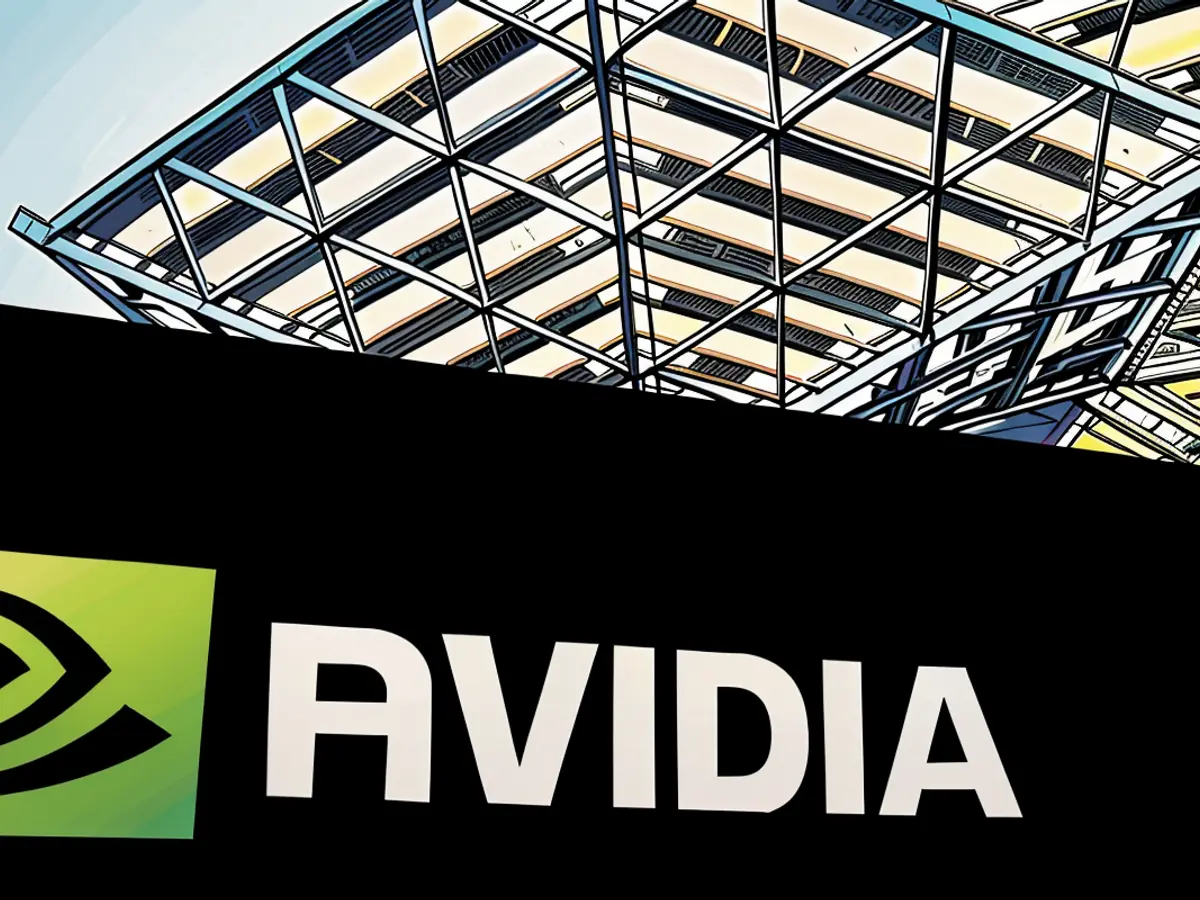- Despite robust advancements in AI, Nvidia is failing to meet expectations in the stock market.
Nvidia continues to reap substantial benefits from the AI boom, but fell short of Wall Street's lofty expectations with its business outlook. Some queries about adjustments in the manufacturing process for the impending chip system, dubbed Blackwell, remained unanswered. Consequently, investors sold off the stock by about seven percent during after-hours trading in the U.S.
Just a short while ago, Nvidia was predominantly recognized by gamers as a supplier of graphics cards. However, it was discovered that the technology behind these cards performed exceptionally well for artificial intelligence applications.
Nvidia's chips have since become a crucial technology for the AI revolution, and the company has amassed a massive market value of around $3 trillion. Since the start of the year, the stock price has skyrocketed by approximately 150 percent, making many Nvidia employees instant millionaires due to their stock options.
Quarterly Report Viewing Party
The highly anticipated quarterly report was considered a major event that could significantly impact the entire market. Some enthusiasts even organized a "viewing party" for it, comparable to those for major sporting events.
However, unlike past quarters where Nvidia surpassed predictions, this time there were no major surprises. Nevertheless, revenue continued to climb, rising from $13.5 billion the previous year to over $30 billion - a 122 percent increase, exceeding analysts' average prediction by $1 billion. This continued the trend from the previous quarter, where revenues increased by 262 percent.
Quarterly earnings soared from around $6.2 billion to approximately $16.6 billion, year-over-year. For the current quarter, the company predicted further revenue growth to $32.5 billion, while analysts on average forecasted approximately $32 billion. This would represent a year-over-year increase of roughly 75 percent. Some analysts were even more optimistic.
Production Adjustment for Next Chip System
Following media reports of difficulties with the upcoming chip system, Blackwell, Nvidia CEO Jensen Huang confirmed that adjustments had been made to the mask utilized for applying chip structures to semiconductor plates. "The change is complete, and no functional modifications were necessary," he emphasized during a meeting with analysts.
Nvidia still plans to deliver Blackwell chips to customers by the end of January 2025 and anticipates generating billions in revenue from them. However, Huang declined to comment on whether the manufacturing process alteration would result in any delays compared to the original plans.
New AI Models Consume More Power
Huang has been promoting Blackwell as a revolutionary innovation that will significantly reduce the time and cost of training software with artificial intelligence for months. He highlighted ChatGPT as an example when introducing it in March. With the current Nvidia generation, Grace Hopper, one could have trained the chatbot in three months using 8,000 chips and 15 megawatts of power. With Blackwell, one could achieve the same result in the same amount of time with 2,000 chips and 4 megawatts of power.
However, Huang noted that more advanced new AI models may require 20 to 40 percent more energy than those currently in use. And the chatbots and image generators that are currently generating buzz are merely "the tip of the iceberg" when it comes to the transformative impact brought about by artificial intelligence.
Huang predicts that in the future, all types of content currently retrieved from databases will be freshly produced by AI each time. This vision requires significant computing resources.
Analyst: Customers are buying everything Nvidia offers
Nvidia aimed to reassure the stock market that it wasn't overly reliant on prompt Blackwell profits for growth. Demand for the current chip generation Hopper remains strong, with some analysts concurring. "Customers will buy whatever Nvidia sells," said industry analyst Gil Luria from financial firm D.A. Davidson on Bloomberg TV.
Originally, Nvidia technology was primarily used to train AI systems with vast amounts of data. Now, it's increasingly being employed for content creation with artificial intelligence, noted CFO Colette Kress. In the last quarter, this contributed over 40% of the $26.3 billion in revenue from the data center business.
This potentially offers a more stable business for Nvidia. While training requires substantial computing power, it's only needed once per AI model.
At the quarterly report viewing party, investors were expecting significant surprises from The Santa Clara-based tech giant Nvidia, but the revenue growth was steady, exceeding analysts' predictions.
After confirming the production adjustments for the upcoming chip system, Blackwell, Nvidia CEO Jensen Huang emphasized that the changes would not affect the original delivery date of January 2025.








